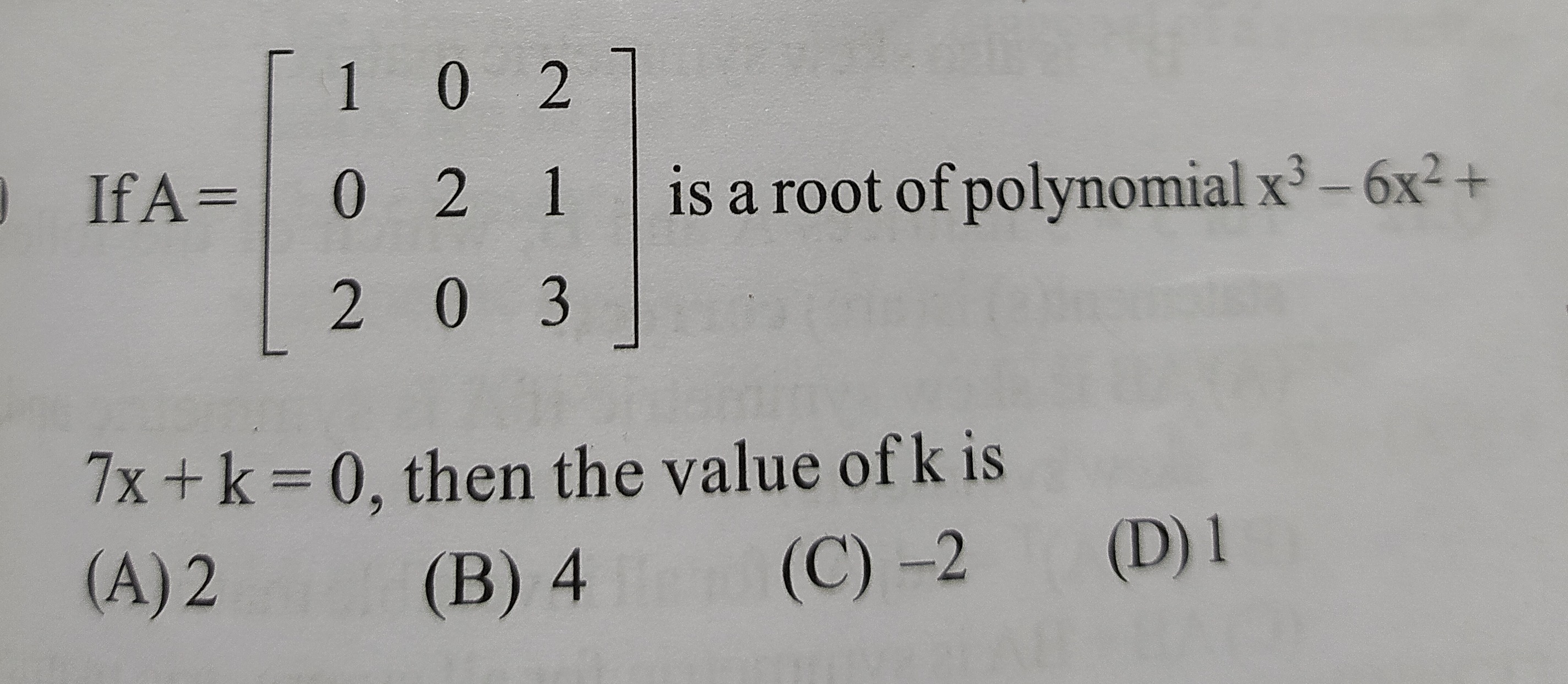Question
Question: If A = $\begin{bmatrix} 1 & 0 & 2 \\ 0 & 2 & 1 \\ 2 & 0 & 3 \end{bmatrix}$ is a root of polynomial $...
If A = 102020213 is a root of polynomial x3−6x2+7x+k=0, then the value of k is

2
4
-2
1
2
Solution
Given that the matrix A=102020213 is a root of the polynomial x3−6x2+7x+k=0. This means that when we substitute the matrix A into the polynomial, the result is the zero matrix. For the constant term k, we replace it with kI, where I is the identity matrix of the same order as A (which is 3x3). So, we have the matrix equation:
A3−6A2+7A+kI=0
According to the Cayley-Hamilton theorem, every square matrix satisfies its own characteristic equation. The characteristic equation of a matrix A is given by ∣A−λI∣=0.
Let's find the characteristic equation of matrix A:
A−λI=1−λ0202−λ0213−λ
The determinant ∣A−λI∣ is calculated by expanding along the second column:
∣A−λI∣=(2−λ)[(1−λ)(3−λ)−(2)(2)]
∣A−λI∣=(2−λ)[λ2−4λ−1]
∣A−λI∣=−λ3+6λ2−7λ−2
The characteristic equation is ∣A−λI∣=0, so:
−λ3+6λ2−7λ−2=0
λ3−6λ2+7λ+2=0
By the Cayley-Hamilton theorem, the matrix A satisfies this equation:
A3−6A2+7A+2I=0
Comparing with A3−6A2+7A+kI=0, we get k=2.
